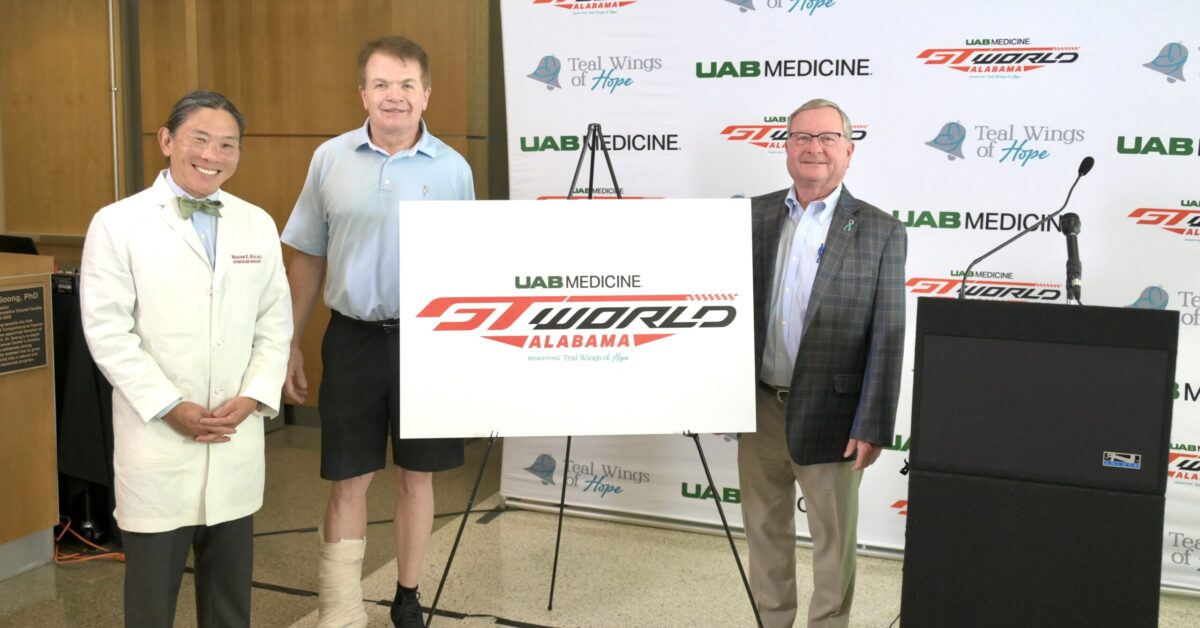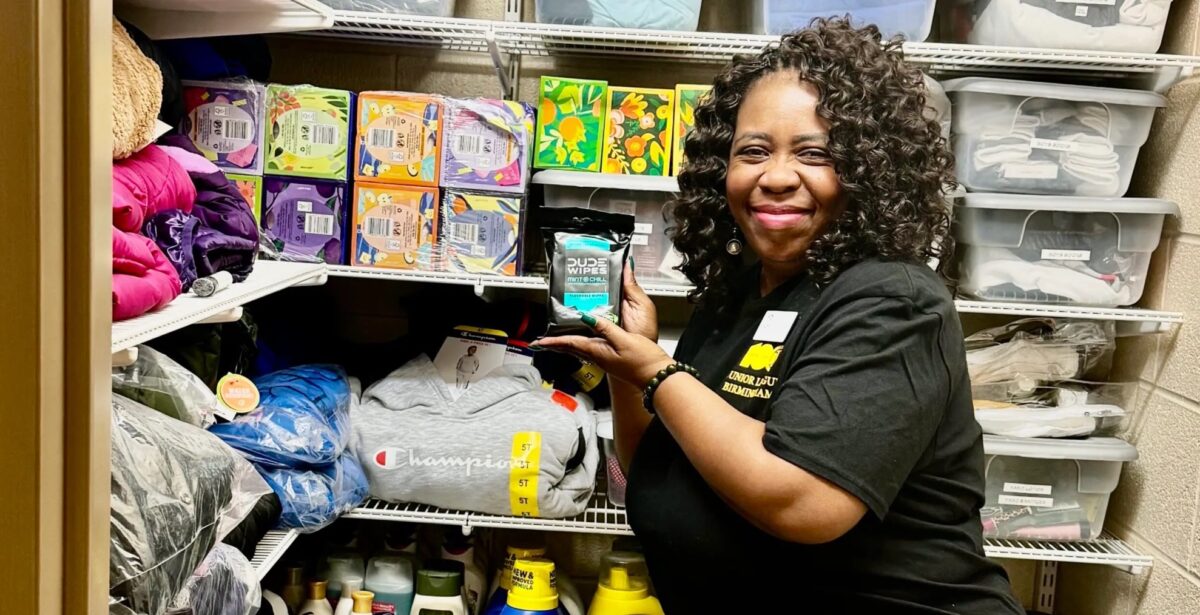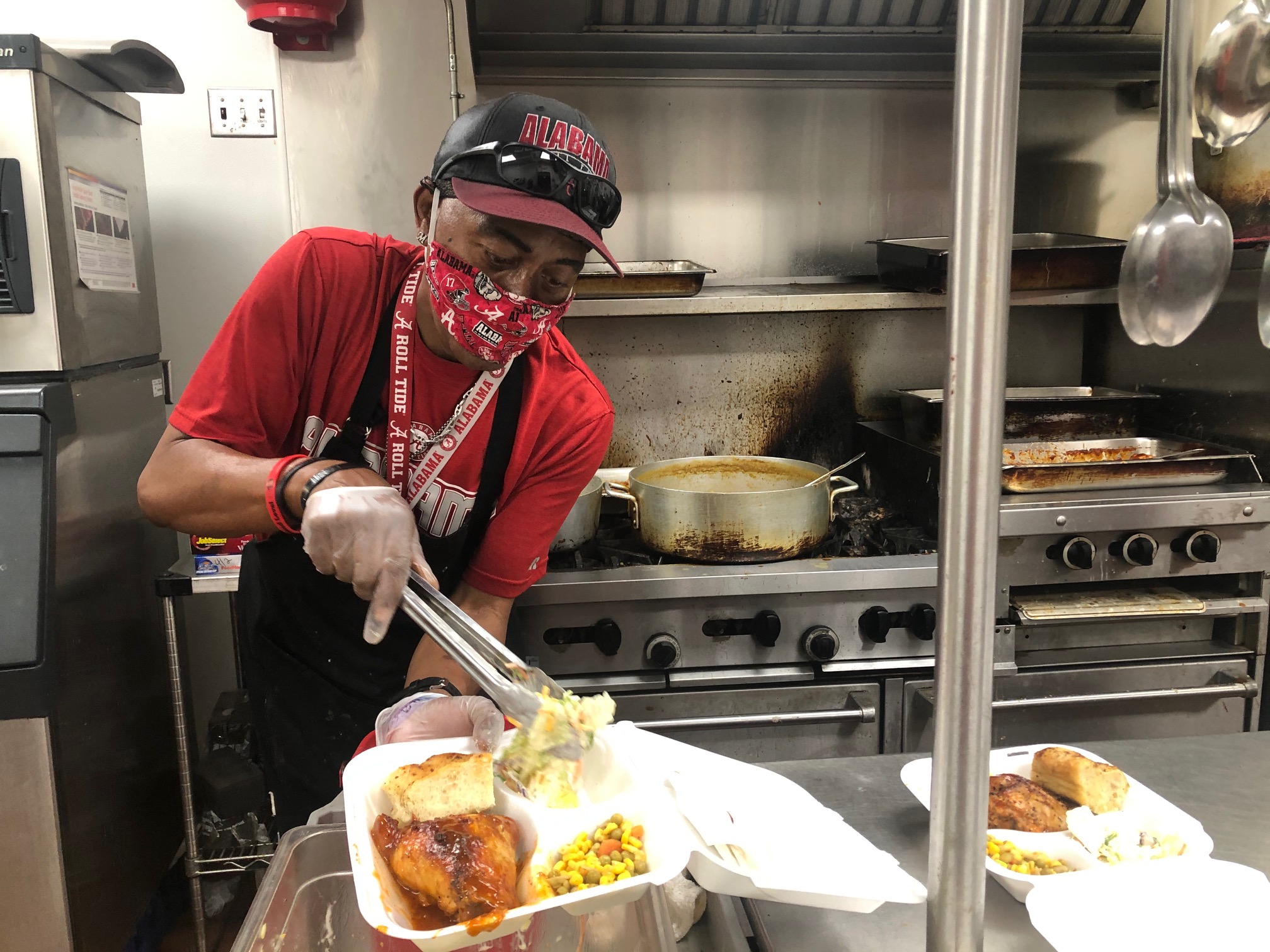They provide free healthcare, mental health support, community + more
Reading time: 6 minutes
Sponsored

While science has provided tools to put an end to the HIV epidemic, it’s up to people and organizations to get these cutting-edge, lifesaving tools into the hands of those who need them. El Centro/The Hub in Lakeview has been doing just that for one year now. Keep reading to find out how.
The basics

El Centro/The Hub opened a year ago, on January 5, 2022, as a health clinic and community/social services center rolled into one.
- What: A Prevention Department entity at AIDS Alabama, beginning in 2011 as a safe space for young gay men of color. Since then, it has evolved into an affirming space welcoming anyone who is interested in learning more about their sexual health.
- Where: 3522 7th Ave South, Birmingham, AL 35222
- Find out more: Facebook | Website | Instagram | TikTok | 205-918-8204
We spoke with Trevis Smith, AIDS Alabama’s Director of Prevention, Marvin Cole-Crum, Community Outreach Coordinator and Kendall Lawson, Clinic Coordinator, to learn more about what this first year has been like. Here’s what they told us.
1. Breaking down stigma

The people we talked with explained that 80-90% of the work they do is prevention, and a lot of that has to do with breaking down stigma, or negative attitudes and beliefs about people with HIV.
The first way they break down stigma is by being visible in the community. You’ll regularly find them at community events, often with their mobile clinic, letting people know what they do.
The second way is by making El Centro/The Hub feel like a homey, welcoming community center where people can drop in and get medical, housing or other services while they are there.


Downstairs at El Centro/The Hub (Jacob Blankenship / Bham Now)
Third, in addition to hosting community events downstairs at The Hub, they offer the following:
- Bathroom, shower, washing machine + hangout areas
- Clothing closet
- Computers
- Workout area
Often, regulars go back out into the community and let others know about the kinds of support they can get at The Hub.
2. Community education

As you can imagine, community education is a huge part of what the staff at El Centro/The Hub does. They explained that they’re getting back to pre-pandemic levels of outreach—with visits to colleges, schools, the Alabama Bureau of Pardons and Paroles, substance abuse treatment facilities—to provide sexual health education and testing.
You can also find them on social media: TikTok | Facebook | Instagram
“We go into any and all of those areas to provide education and/or testing when we’re allowed to.”
Trevis Smith, Director of Prevention, AIDS Alabama
3. Building a diverse team to address health disparities

The staff at The Hub has been intentional about building an extremely diverse team, with representatives from the LGBTQ+ community and heterosexual allies, so visitors can see themselves in the people working there.
This offers guests a safe, comfortable space where they can come for medical care and wraparound services, such as housing, employment and mental health care.
“One of the consistent things we hear is that wow, I don’t know why I’m so comfortable coming here and telling you my business or telling you my truth.”
Marvin Cole-Crum, Community Outreach Coordinator
4. Testing

DYK, one in seven people living with HIV don’t know their status? El Centro/The Hub is working to change that in the Greater Birmingham Area.
Even though they focused primarily on COVID testing at the beginning of 2022, they still ended up doing a tremendous amount of HIV and STI testing:
- 1400-1500 tested for HIV
- 2000 tested for STIs (vs. 3000 in a pre-COVID year)
- 52 outreach events (vs. 80 in a pre-COVID year)
5. Prevention and treatment

There are currently two main types of medication-based HIV prevention, and El Centro/The Hub offers both:
- PrEP (Pre-Exposure Prophylaxis): “PrEP is a daily medication for people who are HIV negative that protects against HIV infection. PrEP reduces the risk of getting HIV from sexual intercourse by 99% when taken daily. Among people who inject drugs, PrEP reduces the risk of getting HIV by 74% when taken daily.”
- PEP (Post-Exposure Prophylaxis): “PEP is an emergency medication that can be taken up to 72 hours after possible exposure, though the sooner it is taken, the more effective it will be. PEP is prescribed as a once or twice-daily pill taken for 28 days. PEP is highly effective in preventing HIV when administered correctly, but it is not 100% effective.”
Additionally, treatment options for people living with HIV have gotten so good that they are known as Treatment as Prevention (TasP). With one pill, taken once per day, someone living with HIV can reduce the level of virus in their bodies so low that it cannot be detected by lab tests.
When this is achieved, HIV cannot be transmitted through sex. If everyone living with HIV had access to these life-saving medications and everyone at risk for HIV had access to PrEP & PEP, new transmissions would stop.
Prevention & treatment options are working toward U=U (Undetectable = Untransmittable)
“Clinical evidence has established that if HIV is undetectable, it cannot be transmitted. This concept, shortened to U=U, means that people living with HIV who take anti-HIV medication as prescribed and maintain an undetectable viral load cannot transmit the virus sexually. Thus, treatment is a powerful tool in preventing HIV infection.”
Gay Men’s Health Crisis
In addition, the clinic offers PrEP and treatment for sexually transmitted infections (STIs) including chlamydia, gonorrhea and trichomoniasis.
Need services or know someone who does? Drop in for free testing—no appointment needed. Want to help? Donate travel-size toiletries, men’s clothing or money today (select Prevention in the drop-down menu).
Sponsored by:



